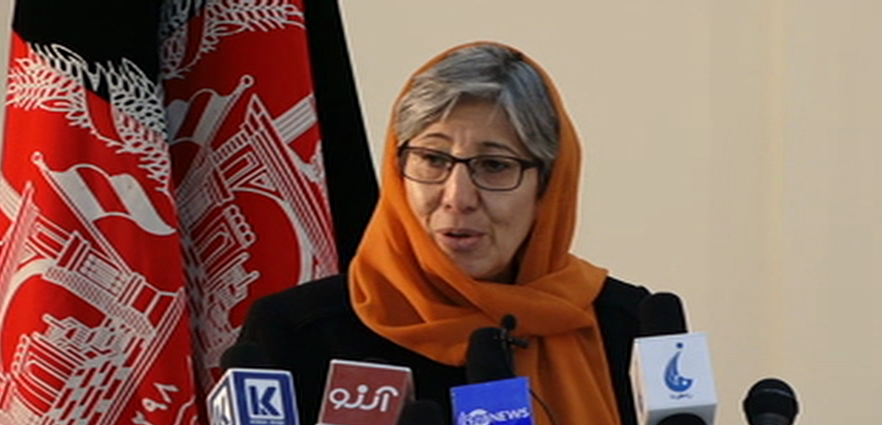
✍️ Sima Samar
Former Chairperson, Afghanistan Independent Human Rights Commission
August 15, 2021, marks the beginning of one of the darkest chapters in Afghanistan’s modern history—a period defined by the collapse of political, economic, judicial, educational, and health systems, paving the way for widespread and systematic human rights violations on multiple fronts.
Over the past four years, Afghanistan has witnessed the dissolution of democratic and civil institutions, the severe restriction of fundamental freedoms, the suppression of rights, systemic discrimination against women and vulnerable groups, and widespread deprivation of access to essential services such as education, healthcare, and justice.
Meanwhile, the international community’s priorities have shifted toward other global crises, and Afghanistan has worryingly slipped from the world’s attention. This reality demands that human rights defenders, civil society institutions, and the international community re-center Afghanistan on the global human rights agenda through rigorous documentation, effective advocacy, and sustained, coordinated action.
Widespread Human Rights Violations Since the Taliban’s Return
From the earliest days of Taliban rule, credible evidence has been documented of massive human rights violations. With the suspension of the Constitution and other laws, blatant disregard for Afghanistan’s international human rights obligations, and the dismantling of national and human rights institutions, the Taliban have established governance structures rooted in repression, discrimination, and injustice.
Reports have documented arbitrary arrests, enforced disappearances, torture, summary trials, corporal punishment in public, forced displacement, extrajudicial killings, and inhumane treatment of prisoners—particularly women’s rights activists, political dissidents, journalists, civil society actors, and ethnic and religious minorities.
Women as Primary Targets of Taliban Oppression
Women, among the most vulnerable social groups, have borne the heaviest burden of Taliban repression. Official Taliban policies have systematically erased women from every sphere of public life—education, politics, culture, and the economy.
- Girls have been banned from secondary school and university.
- Women are barred from employment in government institutions and many NGOs.
- Severe restrictions have been imposed on women’s freedom of movement.
- Social and cultural controls have entrenched gender-based discrimination.
In recent weeks, a new wave of arbitrary arrests of women has been launched under the pretext of not adhering to the Taliban’s prescribed dress code. These arrests have been accompanied by humiliation, abuse, and denial of due process, including lack of access to defense lawyers. If this trajectory continues, the rights of Afghan women and girls face total annihilation, effectively erasing them from all levels of public life.
The Assault on Education
Education, a fundamental human right, is under grave threat. Denying girls access to schooling not only violates Afghanistan’s obligations under international treaties such as the Convention on the Rights of the Child, CEDAW, and the International Covenant on Economic, Social and Cultural Rights, but also condemns an entire generation to darkness, poverty, and dependency.
The Taliban’s focus on expanding madrassas while weakening modern education perpetuates discriminatory structures, entrenches violence, and strengthens extremism and terrorism in Afghanistan.
Mass Deportations and the Refugee Crisis
The mass expulsion of Afghan migrants from neighboring countries, particularly Iran and Pakistan, has added another layer to the human rights crisis. These deportations, often in violation of international refugee protections such as the principle of non-refoulement, have forced hundreds of thousands—women, children, and persons with disabilities—into precarious conditions without shelter, education, or healthcare.
Inside Taliban-ruled Afghanistan, many returnees, especially girls, face torture, arbitrary arrest, and denial of education with no reintegration support. This constitutes not only a violation of social and economic rights but also an exacerbation of poverty and instability.
Reports also show the Taliban have carried out forced displacement in several provinces, seizing homes and lands and redistributing them without due legal process—violating property rights, fueling internal displacement, and intensifying ethnic tensions.
Prisons, Lack of Transparency, and Grave Abuses
Taliban-controlled institutions are characterized by secrecy, lack of accountability, and absence of oversight. Human rights monitors have no access to Taliban-run prisons. This opacity creates an environment for torture, sexual abuse, and degrading treatment of detainees, particularly women, as well as unlawful detention and other severe rights violations.
Achievements of Human Rights Advocacy
Despite repression, the perseverance of Afghan women and human rights defenders has yielded significant results:
- The continued non-recognition of the Taliban regime by the international community.
- The International Criminal Court’s arrest warrants against two senior Taliban leaders—an historic milestone for accountability and justice.
These achievements, while insufficient, are crucial in keeping alive the hope and determination for justice among Afghan victims—especially women subjected to systematic violence and discrimination.
The Way Forward: Civil Resistance and International Solidarity
To confront this dire situation, Afghan civil society, human rights defenders, and the international community must strengthen coordinated and sustained initiatives to uphold human rights. Unity among defenders inside and outside the country is imperative. Organized, well-documented advocacy ensures that silenced voices are heard and victims are not forgotten.
Moreover, justice movements cannot succeed without the active participation of all sectors of society. The struggle for justice, including gender justice, is not the sole responsibility of women but a collective moral duty of every Afghan citizen.
The international community must not abandon Afghanistan. Concrete measures are needed:
- Practical support for human rights defenders and the Afghan people,
- Assistance to independent media,
- Increased political, legal, and judicial pressure on the Taliban.
Conclusion
Afghanistan is living through one of the darkest eras of its modern history. Yet within this darkness, rays of resilience and hope remain:
- Women continuing peaceful protests despite prohibitions.
- Journalists documenting the harsh realities.
- Activists pressing for accountability.
- Families striving to educate their daughters in defiance of Taliban bans.
These are testaments to the enduring spirit of justice, dignity, and humanity.
Our collective responsibility, as citizens of this nation, is to persist—through lawful and civil means—in the pursuit of justice, freedom, and equality. No tyranny endures forever, especially against a people committed to civil struggle for justice.



